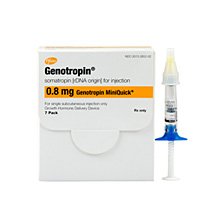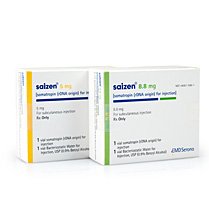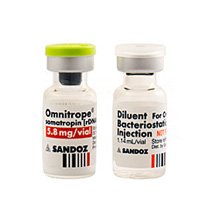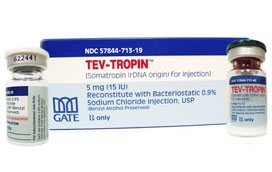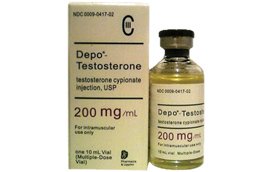Is HGH a Peptide Hormone?
 HGH is a hormone with many names and definitions. You may see it written as human growth hormone (HGH), growth hormone (GH), somatotropin, somatropin, or as a polypeptide protein. Somatotropin (GH) is the chemical produced by the pituitary gland and secreted into the bloodstream to seek out and bind with growth hormone receptor cells (RCs).
HGH is a hormone with many names and definitions. You may see it written as human growth hormone (HGH), growth hormone (GH), somatotropin, somatropin, or as a polypeptide protein. Somatotropin (GH) is the chemical produced by the pituitary gland and secreted into the bloodstream to seek out and bind with growth hormone receptor cells (RCs).
Somatropin (HGH) is the laboratory-produced version of the same chemical. It has an identical molecular structure as growth hormone. Is HGH a peptide or a polypeptide, and what is the difference? That is the question we answer below.
Here are some facts about peptides, polypeptides, and proteins:- Peptides: molecules consisting of between 2 and 50 amino acids
- Polypeptides: molecules with 50 or more amino acids
- Proteins: molecules consisting of 50 or more amino acids
HGH is a polypeptide protein consisting of 191 amino acids in a single chain.
What Are Peptide Hormones?
Peptide hormones are proteins consisting of amino acids that break apart quickly (short half-life) to carry out their functions in the body without the need to be broken down within the cells. They are water-soluble hormones synthesized from amino acids. Unlike steroid hormones that enter the cells to stimulate their actions, peptide, and polypeptide (protein) hormones bind to the receptors on the cells’ surface.How is HGH a peptide hormone?
HGH is composed of 191 amino acids in a single chain. That gives it the designation as a polypeptide or protein hormone.What is an HGH peptide hormone function?
Human growth hormone is a polypeptide hormone that stimulates growth via cellular regeneration. HGH acts on RCs throughout the body and the brain and can be found on most tissues and organs. Proteins support cellular structure and help control crucial metabolic functions.Why Do Adults Need HGH Peptide Therapy?
Somatotropin is a critical hormone for the human body. Not only does it promote cellular regeneration, but it also supports other essential functions, such as:- Immunity
- Metabolism
- Organ maintenance
- Brain functions
- Insulin sensitivity and regulation
- Sexual functions
- Temperature sensitivity and regulation
When is HGH a peptide that adults need?
Adults whose bodies no longer produce enough growth hormone for their needs can benefit from HGH peptides results. Growth hormone deficiency (GHD) can increase the risk of developing conditions such as:- Osteoporosis
- Cardiovascular disease
- Dementia
- Type 2 diabetes
- Depression
- Obesity
What Are the Benefits of HGH Peptide Therapy?
HGH peptide benefits for adults include:- Improved cognitive performance in areas such as concentration, learning, processing, and memory
- Better cell reproduction to support internal organ structure, skin thickness and elasticity, hair and nail growth, bone mineral density, muscle mass, and blood cell production
- Stronger immune system functions for reduced illness and faster healing times
- More normalized cholesterol, triglyceride, blood pressure, insulin, and glucose levels for improved heart and overall health
- Stimulation of testosterone (and subsequently estrogen) production benefiting sexual functions and fertility
- Improved mood and reduced feelings of stress, depression, and anxiety
Are There Side Effects of HGH Peptide Injections?
Every type of medication, whether prescription or over-the-counter, carries a risk of adverse reactions. When dealing with hormones, the primary factor is that each hormone has specific functions in the body. If there is too much or too little of that chemical, its actions may be altered in some way. Hormones that influence the production of other hormones can cause a snowballing effect that creates multiple changes.Is HGH a peptide that carries side effects?
If HGH levels get too high in the body, HGH peptide side effects could occur. The following signs let you know that there may be too much HGH entering the bloodstream:- Edema (fluid retention and swelling)
- Headaches
- Insulin resistance
- Muscle, nerve, or joint pain
- Gynecomastia (male breast enlargement)
- Carpal tunnel syndrome


















 Norditropin
Norditropin